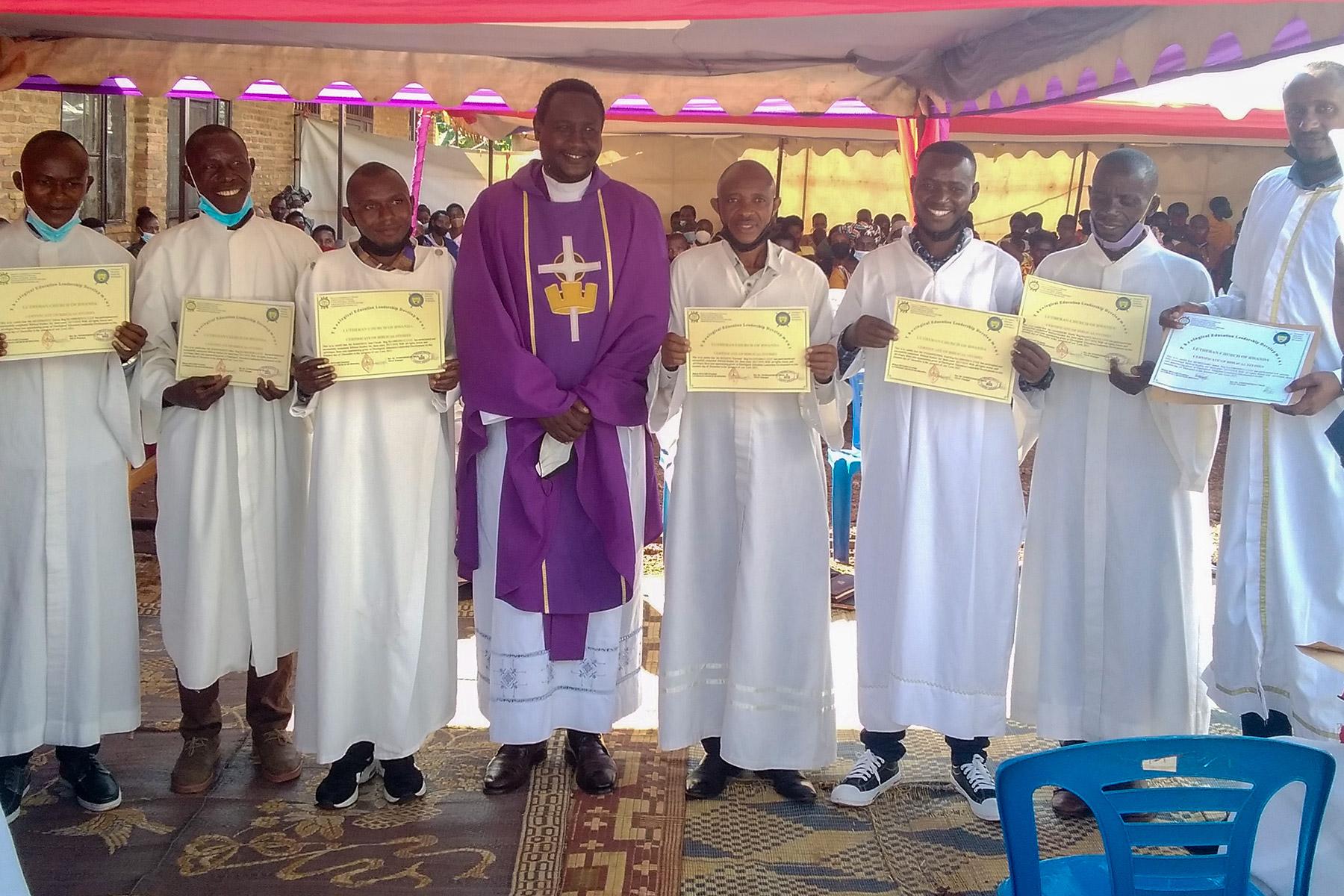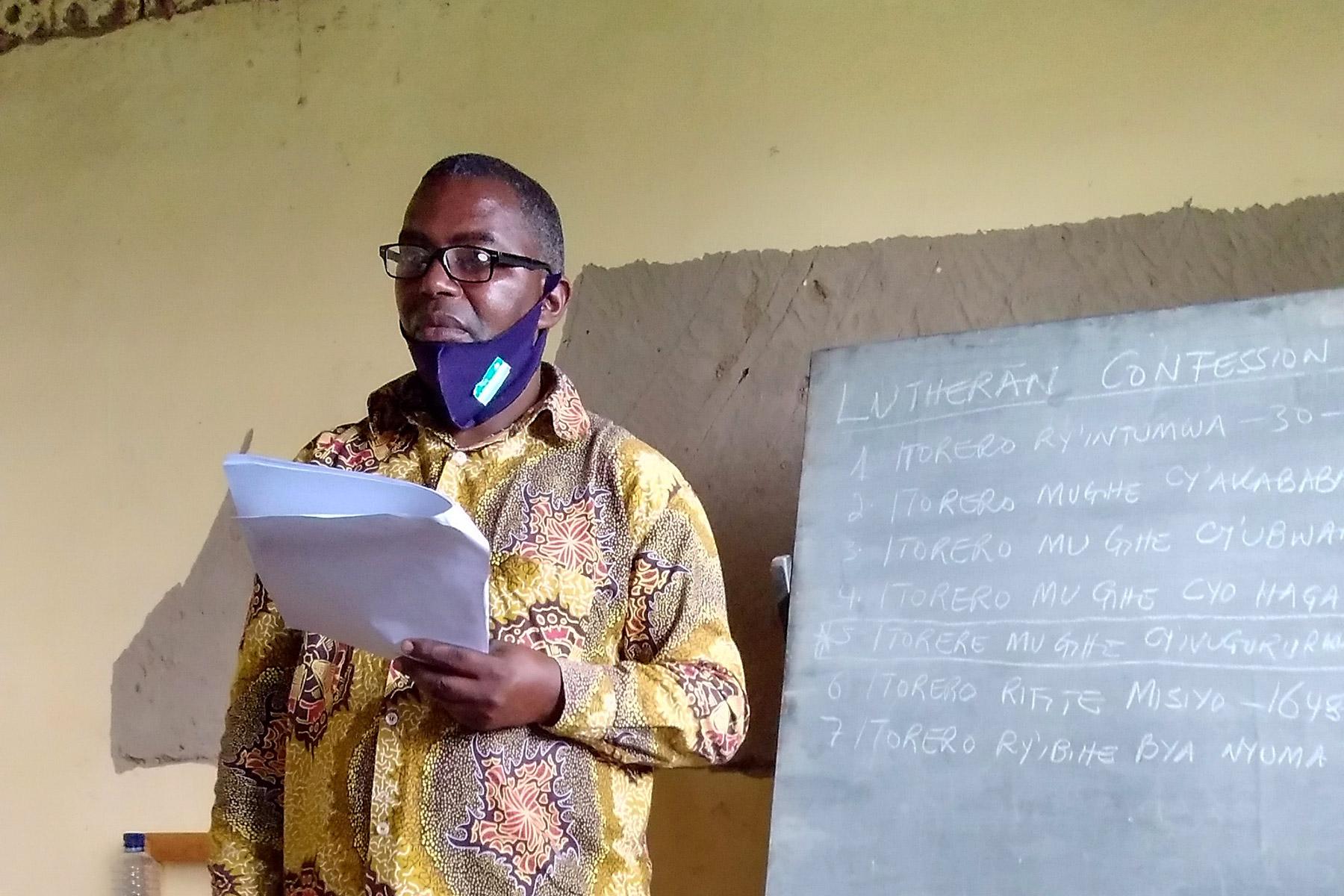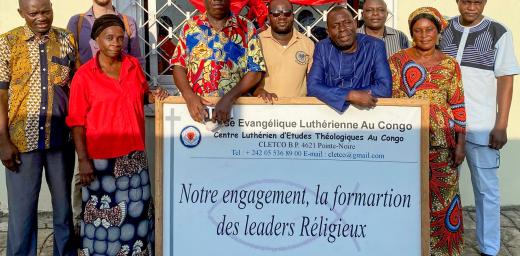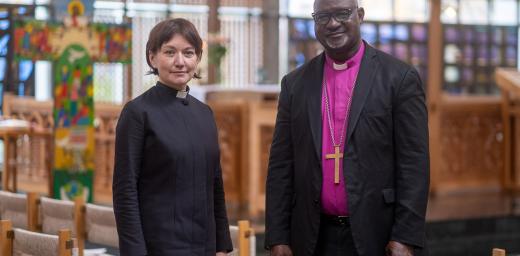Theological seminary established to meet higher demands and requirements
(LWI) - Training evangelists and pastors is a priority for the Lutheran Church of Rwanda (LCR). Since its formation in 1995, the church has grown from 200 to 8,000 members in 60 congregations throughout the country. Currently, the LCR is scaling up its theological training to meet the need for qualified persons in pastoral ministry.
In addition, new regulations by the Rwandan government make that even more urgent: In 2018, it proposed a law that ordained pastors of all denominations must have the equivalent of a bachelor’s or master’s degree in theology or education to continue to serve their congregations.
Religious leaders of all denominations are now working out how to meet the country’s new education regulations.
Evangelists are a pillar of the church
Part of the pastoral challenge stems from how Rwandan churches are led, explains Bishop Evalister Mugabo of the LCR. Right now, the church has 39 pastors. But the church is led primarily by non-ordained evangelists, many of whom have been trained at Rwanda’s Bible school, the Theological Education and Leadership Development (TELD).
However, the bishop explained that TELD is only a steppingstone for those who want to become ordained. What Rwanda desperately needs, he said, is its own seminary.
“For Rwandan Lutheran evangelists, these new government regulations are a surmounting challenge,” said Mugabo. They require traveling to study in other countries, such as Tanzania. That is too expensive for most and entails the hardship of being away from their congregations, communities and families. Thus, the LCR is currently establishing the Lutheran Theological and Leadership College.
“Seminary is different from Bible school,” Mugabo said. “The Bible school is like an incubation center. We bring students to Bible school to be able to serve the congregations. From there, those willing and capable can do their bachelor’s degree.”
“Evangelists and pastors who went through the study programs were trained in Lutheran identity and faith. When they return to their congregations, they implement what they have learned,” Mugabo said. “That’s what helps the church grow.”
Theological training for a growing church
The LCR was formed in 1995 by Rwandan refugees returning from Tanzania after the genocide against the Tutsi people. Almost from its inception, the LCR has known it needs evangelists to reach the entire country, said Ntidendereza David, a pastor and principal of TELD.







